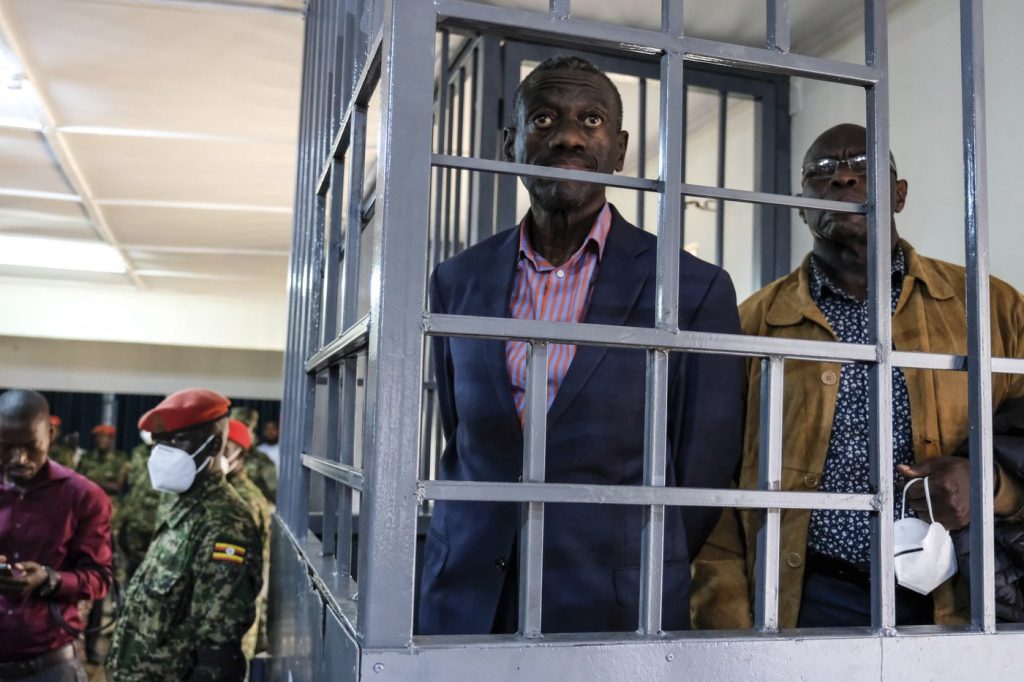KAMPALA, Uganda (AP) — Kizza Besigye, a prominent opposition figure and four-time presidential candidate in Uganda, is facing a significant legal shift as authorities announced that he would be charged in a civilian court instead of a military tribunal. This development comes in response to mounting pressure for his release and amid concerns regarding the politically motivated nature of his charges.
Besigye was reported missing in November while in Nairobi, Kenya, and re-emerged in a cage at a military tribunal in Kampala. His close associates have expressed that the charges he faces, including treachery—which could lead to the death penalty—are primarily politically motivated. The situation has attracted considerable attention as Uganda's Supreme Court ruled last month that civilians should not be subjected to military courts, casting doubt on the military's ability to deliver just rulings.
Judiciary spokesman James Ereemye Mawanda stated that it remains unclear which specific charges Besigye would face under Uganda's penal code. The offense equivalent to treachery is treason; however, officials are currently reviewing the evidence to determine the appropriate legal actions to pursue.
Reports indicate that Besigye has been on a hunger strike for several days, and his family has expressed concern about his deteriorating health. He appeared weak during a recent court hearing, and on Sunday, he required transportation to a clinic in an ambulance for medical treatment, as he is currently held in a maximum-security prison.
President Yoweri Museveni and his son, Muhoozi Kainerugaba, Uganda's top military commander, criticized the Supreme Court's decision against court-martialing civilians, highlighting the ongoing tensions between the judiciary and the executive branches of government. At 68 years old, Besigye has had a long history of political activism, facing multiple arrests throughout his career without ever being convicted of a crime. His background includes a distinguished career as a physician and a retired colonel in the Ugandan military, as well as serving as a personal doctor to Museveni prior to their ideological rift in the 1990s.
Advocacy organizations like Amnesty International have called for Besigye's immediate release, asserting that his abduction violates international human rights laws and the principles of fair trial protections. His case has become a focal point for Ugandans concerned about the political landscape as the nation prepares for presidential elections scheduled for next year.
As discussions regarding the upcoming elections unfold, there is speculation surrounding President Museveni's potential candidacy. Although he is expected to run for re-election, observers suggest he might consider stepping aside, given the lack of a clear successor within the National Resistance Movement party. Kainerugaba's frequent expressions of ambition to succeed his father add another layer of complexity to the political dynamics in Uganda.










